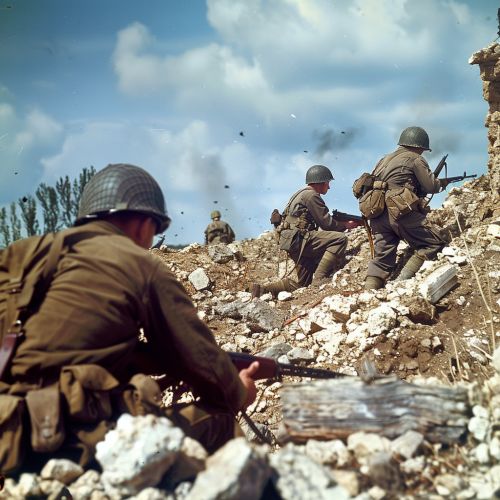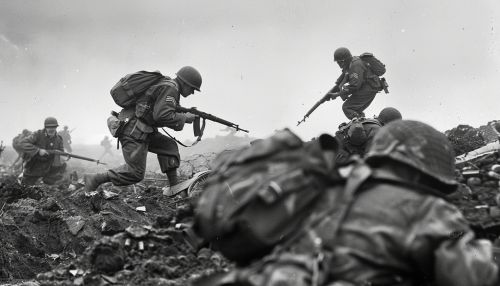Allied
Introduction
The term "Allied" refers to a coalition of nations or entities that come together for a common purpose, typically in the context of military, political, or economic cooperation. The most notable historical example is the Allied Powers of World War I and World War II, but alliances have existed throughout history and continue to be a significant aspect of international relations.
Historical Context
World War I
The Allied Powers in World War I, also known as the Entente Powers, consisted primarily of France, the United Kingdom, Russia, and later the United States and Italy. These nations opposed the Central Powers, which included Germany, Austria-Hungary, the Ottoman Empire, and Bulgaria. The Allies formed in response to the aggressive expansion and militarism of the Central Powers, seeking to maintain a balance of power in Europe.
The Treaty of Versailles, signed in 1919, marked the end of World War I and imposed heavy reparations and territorial losses on Germany. The treaty aimed to prevent future conflicts but also sowed the seeds of resentment that contributed to World War II.
World War II
In World War II, the Allied Powers included the United States, the Soviet Union, the United Kingdom, China, and numerous other nations. This coalition opposed the Axis Powers, primarily Germany, Italy, and Japan. The Allies sought to defeat the totalitarian regimes of the Axis and restore peace and stability to the world.
The Yalta Conference in 1945 was a significant meeting between Allied leaders Franklin D. Roosevelt, Winston Churchill, and Joseph Stalin. They discussed the post-war reorganization of Europe and the establishment of the United Nations.


Military Alliances
NATO
The North Atlantic Treaty Organization (NATO) is a military alliance formed in 1949, primarily consisting of North American and European countries. NATO was established in response to the threat posed by the Soviet Union during the Cold War. The principle of collective defense, enshrined in Article 5 of the NATO treaty, states that an attack on one member is considered an attack on all members.
Warsaw Pact
The Warsaw Pact was a military alliance of communist nations in Eastern Europe, established in 1955 as a counterbalance to NATO. It included the Soviet Union, East Germany, Poland, Hungary, Czechoslovakia, Romania, Bulgaria, and Albania. The Warsaw Pact dissolved in 1991 following the end of the Cold War and the collapse of communist regimes in Eastern Europe.
Economic Alliances
European Union
The European Union (EU) is a political and economic union of 27 European countries. It was established by the Maastricht Treaty in 1993, building on earlier economic cooperation agreements. The EU aims to promote economic integration, political stability, and social progress among its member states. The Eurozone, consisting of 19 EU countries, uses a common currency, the euro.
ASEAN
The Association of Southeast Asian Nations (ASEAN) is a regional intergovernmental organization comprising ten Southeast Asian countries. Established in 1967, ASEAN aims to promote economic growth, social progress, and regional stability. The ASEAN Free Trade Area (AFTA) is one of the key initiatives to enhance economic cooperation among member states.
Political Alliances
United Nations
The United Nations (UN) is an international organization founded in 1945 to promote peace, security, and cooperation among nations. The UN has 193 member states and operates through various specialized agencies, including the World Health Organization (WHO) and the International Monetary Fund (IMF). The UN Security Council, consisting of five permanent members and ten non-permanent members, is responsible for maintaining international peace and security.
African Union
The African Union (AU) is a continental union consisting of 55 African countries. Established in 2001, the AU aims to promote unity, peace, and development across Africa. The AU's Peace and Security Council is responsible for conflict prevention, management, and resolution on the continent.
